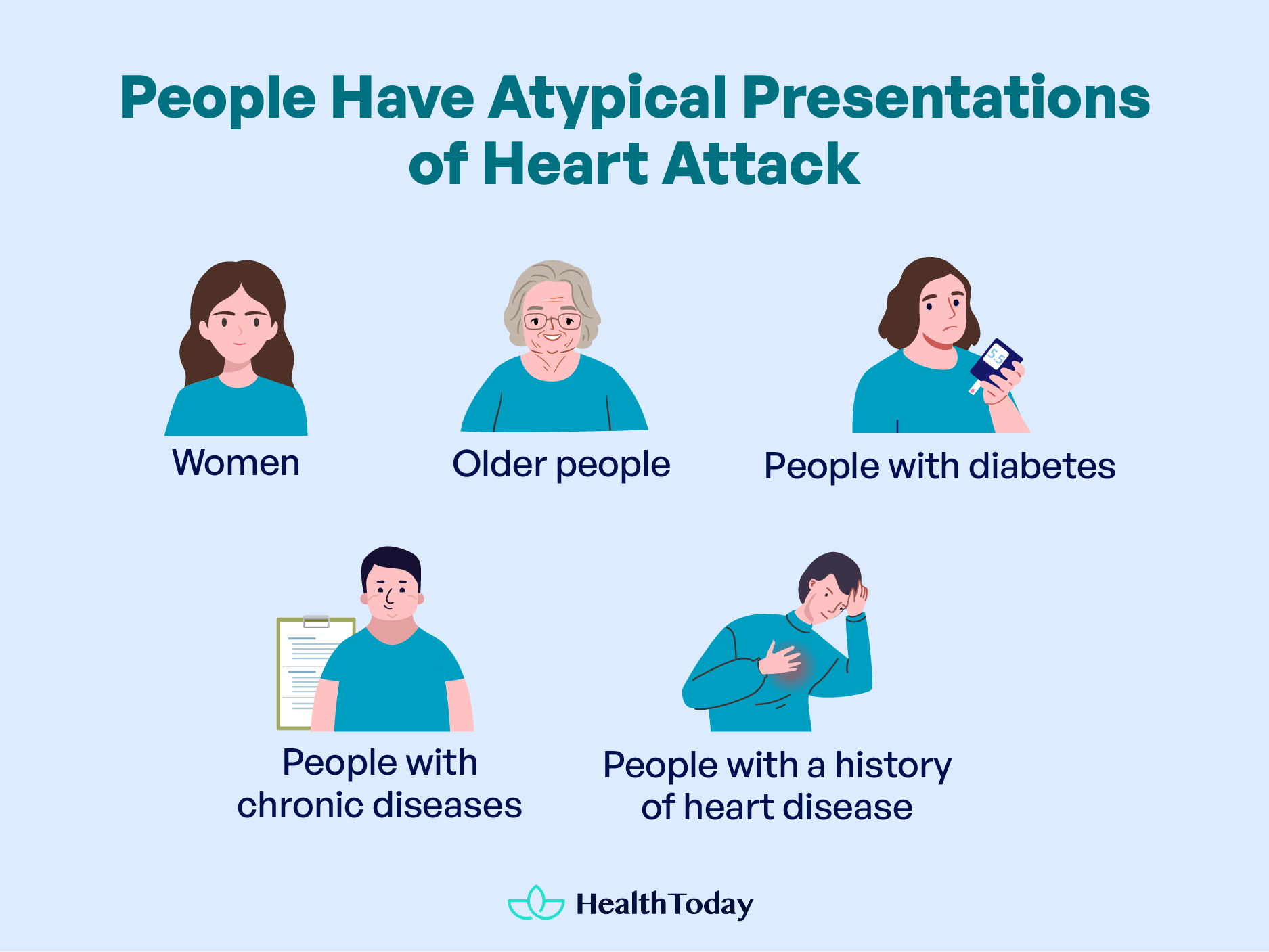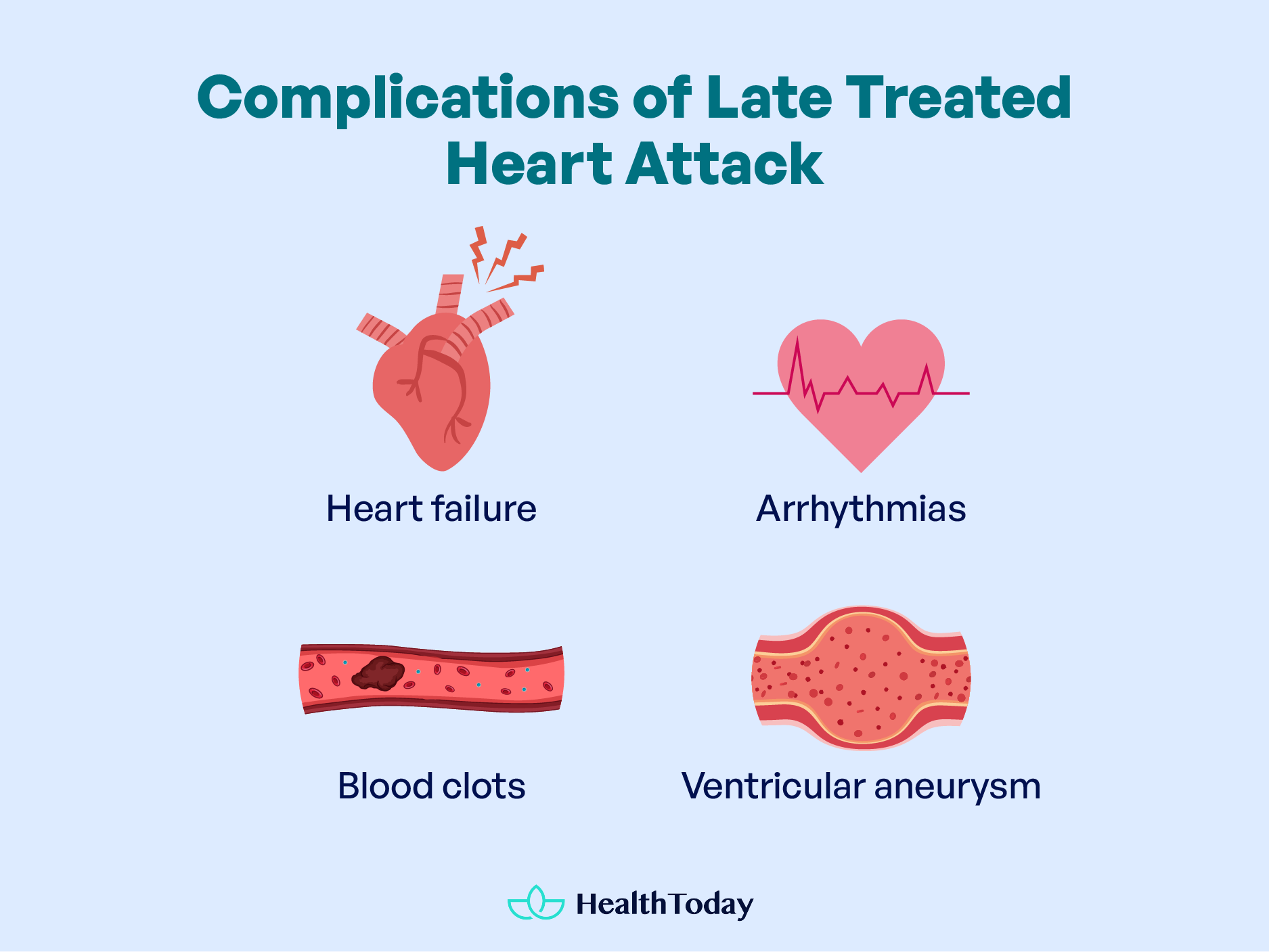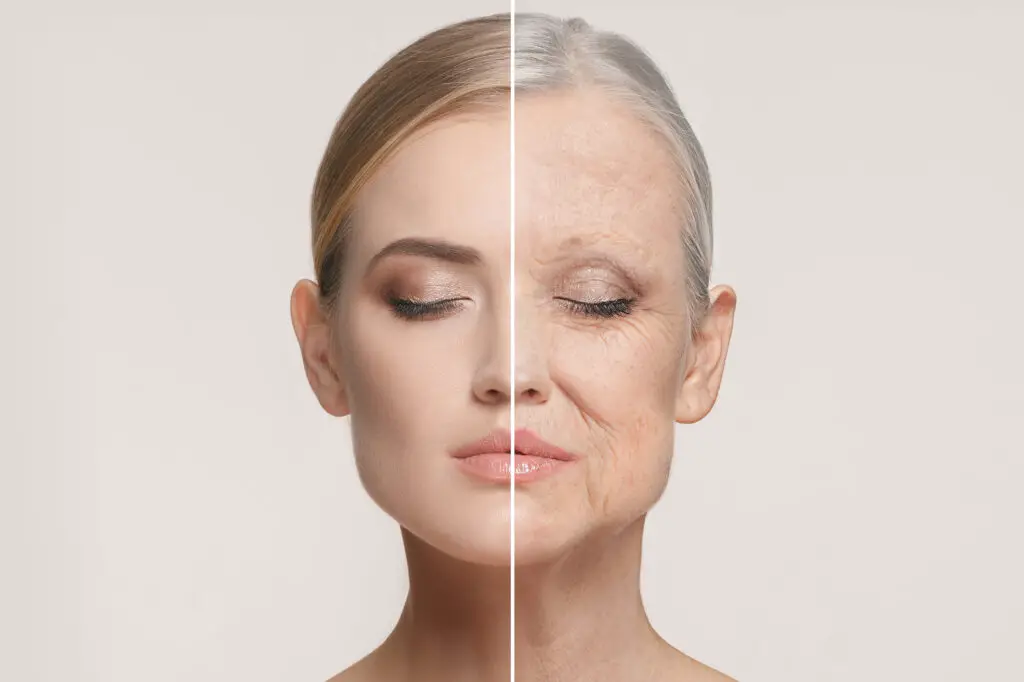Table of Contents
Heart attacks are one of the most common cardiac emergencies in emergency rooms, typically linked to chest pain as the predominant symptom. However, other clinical presentations can lead to confusion in identifying this condition. Jaw pain, arm pain, or upper abdominal discomfort are other ways in which a heart attack can manifest.
In this article, we will discuss “Is jaw pain a sign of a heart attack?” and how chest pain and jaw pain can be associated with heart attacks.
Keep reading to learn more about how to identify symptoms of heart attack and how to respond to this situation.
Chest pain radiating to the jaw: The link to heart attack
Cardiovascular diseases, particularly heart attacks, are among the top three leading causes of death worldwide. In the United States, a heart attack occurs every 40 seconds, affecting approximately 805,000 people each year (1). A sedentary lifestyle, obesity, fast food consumption, smoking, and stress stand out as the most significant risk factors that can trigger a cardiac event (2).
A heart attack occurs when there is an imbalance between oxygen demand and supply in the heart. This is due to the obstruction of the coronary arteries, thus reducing the oxygen supply. This blockage is caused by the formation of a blood clot in a previously damaged coronary artery, interrupting the supply of blood and oxygen to the heart. The loss of cardiac tissue due to oxygen deprivation highlights the importance of quick identification and prompt treatment to prevent serious or even fatal consequences.
Jaw pain, especially when accompanied by chest pain, may indicate a heart attack. The most common symptoms include:
Chest pain
Chest pain is usually intense and oppressive, like an elephant’s footstep. Sometimes, these sensations can occur suddenly and intensely. This occurs when the obstruction occurs suddenly. If the obstruction progresses slowly over time, the symptoms appear gradually. In these cases, people may mistake the sensations for heartburn or indigestion.
If the pain occurs when you exercise and calm down at rest, one of the causes may be angina pectoris. You should consult a doctor to prevent it from progressing to a heart attack.
Shortness of breath
Having a heart attack may make you feel short of breath before or during the event. This is due to multiple factors; one is because the heart needs more oxygen and sends signals of lack of air to the brain.
Radiating pain
The heart has multiple nerve connections; thus, pain can present itself and spread to other areas. The most common are the left arm, neck, and jaw. But it can also present as pain in the pit of the stomach and back.
Cold sweats
Cold sweating is a manifestation of the body’s autonomic nervous system response. During a heart attack, the sympathetic nervous system is intensely activated, so the patient may feel that they make their bed or clothes wet.
Stomach symptoms
Some people experience gastrointestinal symptoms when they have a heart attack. People may have:
- Nausea
- Vomiting
- Indigestion
- Stomach pain, or burning
These stomach symptoms can cause people to mistake a heart attack for heartburn.
Loss of consciousness
When the infarction involves important areas of the heart, a loss of consciousness may occur due to a lack of blood supply to the brain. This is a medical emergency as it denotes a major area of injury to the heart.
The presence of severe chest pain, with a feeling of tightness radiating to the left arm, neck, and jaw, along with sweating or shortness of breath, indicates the possibility of a heart attack. In these cases, it is crucial to seek medical help immediately, either by contacting emergency services or calling 911. Prompt response and treatment are essential to address the situation and improve the chances of recovery effectively.
Are neck and jaw pain signs of a heart attack?
Among classic presentations of a heart attack, radiating pain to the neck and jaw is common due to the heart’s nerve connections to the rest of the body. If you experience these symptoms, calling 911 immediately for urgent assistance is imperative. In the emergency room, the doctor will use an electrocardiogram and cardiac enzyme analysis to identify the cause of the pain and begin early treatment.
Who often experiences atypical presentations of a heart attack?
Atypical presentation of a heart attack refers to the manifestation of symptoms that are not typical or do not fit the classic picture of chest pain. This type of presentation can occur in various people but is more common in certain groups, such as women and the elderly (3).

Women
Women sometimes experience different heart attack symptoms than men (4). Instead of sudden sharp chest pain, women may have more subtle symptoms, such as jaw, back, neck, or arm discomfort, extreme fatigue, nausea, or shortness of breath. These atypical symptoms may cause them not immediately to recognize that they are experiencing a heart attack.
Older people
In older people, the presentation of a heart attack may be less symptomatic than in typical cases (5). Chest pain may be less pronounced, and symptoms such as fatigue or weakness may be mistaken for age-related problems.
People with diabetes
In patients with diabetes mellitus, cardiovascular disease is the main cause of mortality (6). People with diabetes often have neuropathy, which can affect pain perception. This can lead to not feeling typical chest pain during a heart attack.
People with chronic diseases
Those with chronic diseases, such as kidney failure, may have atypical symptoms due to the complexity of their health conditions.
People with a history of heart disease
Those who have already experienced heart problems or had previous heart surgeries may have atypical presentations compared to their medical history.
It is essential to note that regardless of presentation, any suspicion of a heart attack should be taken seriously. If you experience any alarming symptoms, you should seek medical attention immediately. Recognizing and acting quickly to atypical symptoms can be crucial for effective treatment and improved recovery.
What are the complications of a heart attack if I seek medical attention late?
A heart attack, if not treated promptly or if you receive medical attention late, can lead to several complications that can have serious health consequences, including:

Heart failure
One of the most frequent complications is heart failure, which occurs when the heart cannot pump enough blood to meet the body’s needs (6). The damaged heart muscle can become less efficient, decreasing heart function. This can result in shortness of breath, leg swelling, and persistent fatigue. Heart failure may require long-term medical treatment and, in some cases, the need for devices such as pacemakers or defibrillators.
Arrhythmias
Another significant complication is the development of cardiac arrhythmias, which are disturbances in heart rhythm. Atrial fibrillation (AF) is the most common cardiac arrhythmia and a frequent complication of acute myocardial infarction. AF occurs in 5% to 10% of patients who have received fibrinolysis (7). Scar tissue that forms after a heart attack can interfere with the heart’s normal electrical conduction, increasing the risk of irregular heart rhythms. Some arrhythmias can be life-threatening and increase the risk of stroke.
Blood clots
The formation of a blood clot in the affected area of the heart or the heart chambers is also a worrisome complication. This clot can break off and travel to other parts of the body, causing blockages in major arteries, which could result in a stroke or other serious complications.
Ventricular aneurysm
Weakness of the heart muscle after a heart attack can lead to dilation of the heart, known as a ventricular aneurysm, where a portion of the heart wall weakens and becomes wider. This increases the risk of rupture, which could have life-threatening consequences:
- Remote organ injury
- The kidneys are organs frequently affected by an advanced heart attack. It’s because the heart cannot send the blood necessary for the normal functioning of the organs, such as kidneys or lungs.
Understanding the potential complications of a heart attack makes us aware of the importance of not postponing when experiencing the first symptoms. In the presence of any warning signs or doubts, it is imperative to seek help immediately, either by going to the emergency room or calling 911. The severity of this condition requires an immediate response to maximize the chances of effective treatment and reduce the risk of serious complications.
When chest and jaw pain are not heart-related?
Chest and jaw pain can be caused by various factors unrelated to the heart. Some non-heart-related causes of chest and jaw pain include:

- Muscle strain or injury: Tight muscles in the chest or jaw, often due to physical activity or injury, can cause pain.
- Gastrointestinal problems: Conditions such as acid reflux, heartburn, or indigestion can cause chest discomfort that could be mistaken for heart pain. Pain may also radiate to the jaw.
- Anxiety or stress: Emotional stress or anxiety can manifest itself physically, causing tightness in the chest and pain in the jaw.
- Dental problems: Problems such as toothache, gum disease, or temporomandibular joint (TMJ) disorders can cause jaw pain.
- Bruxism: Bruxism is a medical condition in which a person clenches or grinds his or her teeth involuntarily, usually at night while sleeping. This habit can generate symptoms such as jaw pain, headaches, tooth wear, and, in more severe cases, damage to the teeth and jaw.
- Respiratory conditions: Lung problems such as pneumonia cause chest pain, and discomfort can occasionally be felt in the jaw. This is usually accompanied by fever and other respiratory symptoms, such as cough with mucous sputum.
- Cervical spine problems: Problems with the cervical spine, such as herniated discs or cervical radiculopathy, can cause pain that radiates to the chest or jaw. In addition, you may feel a tingling sensation in your arms.
It is important to emphasize that any unexplained or severe chest and jaw pain should be evaluated by a healthcare professional immediately to rule out serious conditions.
What part of your jaw hurts during a heart attack?
The pain during a heart attack can manifest in various parts of the jaw, ranging from the lower jaw to the area near the ear. The pain may be described as dull, aching, or sharp.
Does heart attack pain come and go?
Heart attack pain can vary in intensity. If it is cardiac pain, it usually does not go away. Persistent or recurrent chest and jaw pain, especially when accompanied by other symptoms, should not be ignored.
How can I test myself for a heart attack?
Self-diagnosis of a heart attack is not recommended. If you suspect a heart attack, seek emergency medical attention immediately. Only healthcare professionals can accurately diagnose and treat a heart attack.
What is the fastest way to check for a heart attack?
The fastest way to check for a heart attack is to call emergency services or go to the nearest emergency room if you experience symptoms such as chest pain, jaw pain, shortness of breath, or other signs associated with a heart attack.
What is the best position for a heart attack?
There is no specific position that is considered best during a heart attack. However, if you are experiencing symptoms, it is advisable to sit down, stay calm, and seek help immediately. Lying down may be preferred if you feel lightheaded or dizzy.
Summary
Prevention, early detection, and timely treatment are fundamental in heart attacks. These events, which remain one of the leading causes of death worldwide, can present with classic symptoms such as chest pain but also in atypical ways, involving areas such as the jaw and back.
Ignoring these symptoms or delaying seeking medical attention can lead to serious complications such as heart failure, arrhythmias, blood clots, and injury to other organs. Statistics reflect the magnitude of this global health problem, highlighting the importance of adopting healthy lifestyles, knowing the risk factors, and receiving immediate medical attention in the event of a suspected heart attack.

















Comments
0